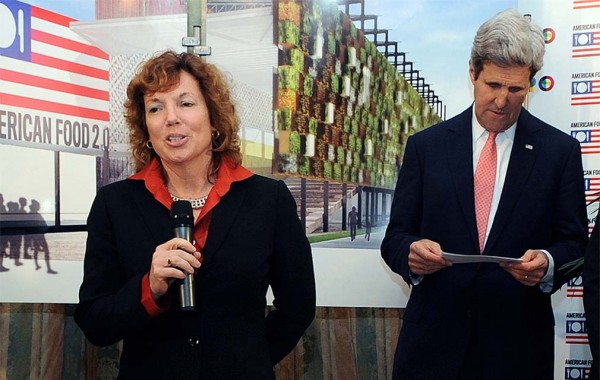Kathleen Doherty ’85
In September, Kathleen Doherty ’85 moved to Nicosia, Cyprus, to serve as America’s first female ambassador to that country. “A little Mediterranean gem with 320 days of sunshine,” she enthused. But along with the temperate weather and beauty comes a complicated history. Divided since 1974, the island is part Greek Cypriot, part Turkish Cypriot, with a U.N. buffer zone between the two. Today, with peace talks underway, the Greek Cypriot and Turkish Cypriot communities have an opportunity to end the long-standing division of their island.
Doherty is optimistic that the settlement talks could reunify Cyprus. “It’s very rare, in the world we live in today, to find two separate societies finding a way to bring themselves back together again,” she said.“You see people being really courageous. I’m hopeful that will lead to something different. It’s up to the Cypriots to decide their own destiny. It’s a good message to other countries that have been in conflict for a long time.”
Doherty has had an impressive career with the Foreign Service. She’s held posts in the Dominican Republic, Brazil, London, Moscow, District of Columbia, and Rome — one of the largest U.S. embassies in the world. In Rome, her assignment immediately prior to Cyprus, Doherty was the deputy chief of mission — second in command. “I was basically the COO of a very big organization,” she explained. Over the years, Doherty has applied her economics acumen to achieve foreign policy goals. In the early 1990s, she was an economic officer in Sao Paulo when Brazil had 3,000 percent annual inflation. Later that same decade, in Moscow, during “Russia’s Wild West boom period,” she pressed for economic reforms,.” In 2013, Doherty won the State Department’s Rockwell Schnabel Award for Advancing U.S.-EU Relations.
For her postings, she’s learned four languages: Spanish, Portuguese, Italian, and Russian. She’s working on Greek and Turkish now.
Doherty, whose father emigrated from Ireland, traveled internationally from an early age. “From visiting relatives in Ireland and having them come over to America, I was very interested in foreign travel,” she said, “but I had no idea what the Foreign Service was. I didn’t expect this to be my lifelong career.”
Growing up, “we talked politics all the time around the table,” she recalled. “It was a family tradition to read the New York Times, and [being part of] an Irish family, you had to learn how to argue your position well.” She chose political science as her major at Colgate. “I was going to get involved with campaigns, work on Capitol Hill, and then run for public office. That was my idealism.”
During junior year, Doherty participated in the Washington, D.C., Study Group and then moved there after college. She took the grueling Foreign Service exam “on a lark” and passed it on the first try — crediting her habitual reading of the New York Times as a major factor of her success. The State Department offered her a job. Doherty turned it down, which is virtually unheard of, to pursue a graduate degree at London School of Economics.
In 1989, “London is where my life changed,” Doherty reminisced. As part of her political economy degree, she studied Eastern Europe and communism, specifically East Germany and Hungary. And then, the Berlin Wall fell. She met many students who were “seized with the idea of changing the world with the fall of communism. It was then I realized I was foolish to turn down the Foreign Service.” When the State Department came calling again in 1990, offering her a second opportunity to join (another rarity), Doherty heartily accepted. She hasn’t looked back in 25 years.
Today, with knowledge and experience gained from a successful Foreign Service career, Doherty welcomes her leadership role and appointment as U.S. ambassador to Cyprus. “I’m happy to be part of this historic time here,” she concluded.
— Nancy J. McCann







